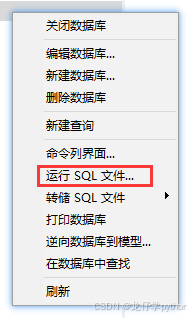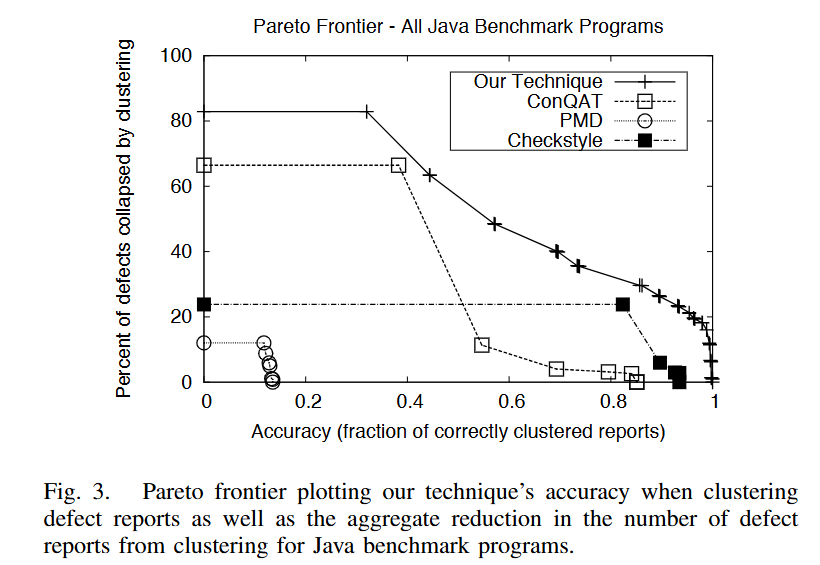编写一个Linux下的设备驱动,首先要准备好对应内核版本的内核源码树文件。
该系列的全部文章都以嵌入式系统的ARM-Linux的环境进行阐述,并以交叉编译的方式在主机Ubuntu20.04系统上编译和ARM开发板上跑测 (E2000Q、H616、或者IMX6ULL看情况交叉着使用) 关于交叉编译的配置,以往的文章中有作介绍,这里不再赘述。
驱动程序一般要执行两类任务:
1.模块中的某些函数作为系统调用的一部分而执行
2.某些函数则负责中断处理
hello world模块
很多高级语言的学习,第一个程序都是打印一句“hello world”来打开编程世界。内核模块的编写虽然不是应用类的程序,但是也可以有入门级的模块程序,如下hello world模块
#include <linux/module.h>
#include <linux/init.h>
#include <linux/kernel.h>
#include <linux/device.h>
static int __init hello_init(void)
{
printk("%s %s line %d\n", __FILE__, __FUNCTION__, __LINE__);
return 0;
}
static void __exit hello_exit(void)
{
printk("%s %s line %d\n", __FILE__, __FUNCTION__, __LINE__);
}
module_init(hello_init);
module_exit(hello_exit);
MODULE_LICENSE("GPL");需要强调驱动程序,和应用程序不同,它不是生成可执行程序,而是生成目标代码的可执行模块
因此驱动程序的编写,不会有入口函数(main函数),但是它的生效需要module__前缀的函数来驱动。
MODULE_LICENSE("GPL")是为了告诉内核,装载驱动模块采用公共许可证;module__init()和module__exit()会调用内核的特殊宏来表示函数所扮演的角色,一个是模块入口(负责初始化和注册设备),一个是模块出口(负责关闭和清理工作)
注意:内核有自己单独的打印输出函数printk,因为它在运行时不能依赖于C库;
模块能调用printk是因为在insmod函数装载模块后,模块就连接到内核,可以访问内核的公共函数和变量。
编译并装载
注意:这里的驱动程序源文件命名需要和目标文件相同,即 hello_drv.c 配 hello_drv.o
编写Makefile文件
KERN_DIR = /home/usr/phytium-linux-buildroot/output/build/linux-kernel-5.10_v2.1/
all:
make -C $(KERN_DIR) M=`pwd` modules
clean:
make -C $(KERN_DIR) M=`pwd` modules clean
rm -rf modules.order
obj-m += hello_drv.oUbuntu主机上编译,并上传到ARM开发板装载(装载也可以使用 modprobe (它可以附带地装载一些必要模块))
#host
make
#arm-Linux
sudo insmod hello_drv.ko卸载
sudo rmmod hello_drv列出当前装载到内核中的所有模块,并提供了其他一些信息 (通过读取 /proc/modules虚拟文件来获得这些信息)
lsmod模块与应用程序的异同
还是那句话,要为某个特定的内核版本编译模块,则需要该特定版本对应的构造系统和源代码树(KERN_DIR变量)。
开发过程中的经验:如果打算编写一个驱动程序用于一般性的发布,要考虑好如何支持可能的不同处理器变种,以源代码形式及一组用于编译的脚本发布自己的驱动程序是最好的办法。
不同点
1.大多数小规模及中规模应用程序是从头到尾执行单个任务,而模块却只是预先注册自己以便服务于将来的某个请求(事件驱动的编程方式)。
2.应用程序在退出时,可以不管资源的释放或者其他的清理工作(内核会清理),但是模块的退出函数却必须仔细撤销初始化函数所做的一切,否则,在系统重新引导之前某些东西就会残留在系统中。
3.应用程序可以调用它并未定义的函数,因为链接过程能够解析外部引用从而使用合适的函数库,而模块仅仅被链接到内核(没有任何函数库会和模块链接,内核模块只能使用作为内核一部分的函数)。
4.内核错误即使不会影响整个系统,但是也至少会杀死当前进程,而应用程序开发的段错误基本是没有什么危害的,而且总能跟踪到BUG。
5.应用程序运行在所谓的用户空间中,模块运行在所谓的内核空间中。(执行系统调用,会将CPU的执行模式切换到内核空间,执行系统调用的内核代码运行在进程上下文中)
这里说明一下,处理硬件中断的内核代码和进程是异步的。
6.应用程序在虚拟内存中布局,并具有一块很大的栈空间,而内核具有非常小的栈(内核是一个大的,独立的程序)
初始化与销毁的细节
对于放入module__init的称之为初始化函数
模块的初始化函数负责注册模块所提供的任何设施(模块可以注册许多不同类型的设施,对每种设施,对应有具体的内核函数用来完成注册),其中__init表明该函数仅在初始化期间使用,模块装载完成后,将该函数占用的内存释放。
设施能被注册,是因为它们能够以某种方式集成到驱动程序功能当中,大部分注册函数名字带有register__前缀。
对于放入module__exit的称之为销毁函数
模块的销毁函数在模块被移除前注销接口并向系统中返回所有资源,其中__exit修饰词表示该函数仅用于模块卸载(编译器将把该函数放在特殊特殊的ELF段中),只能在模块被卸载或者系统关闭时被调用,其他的任何用法都是错误的。
驱动开发的注意点:模块代码必须始终检查返回值,并确保所请求的操作已真正成功。模块的初始化出现错误之后,模块必须自行撤销已注册的设施(使用goto来处理)。
每次检查时,返回合适的错误编码,因为用户程序可以通过perror函数将它转换为有意义的字符串。销毁函数必须在撤销每项设施的注册之前检查它的状态。
Linux驱动也能来点灯
“点灯”,这是许多单片机教学入门的第一个程序。Linux驱动也可以点灯,以一个稍微复杂点的实现底层点灯驱动的代码来阐述这一过程。(个人概括,单片机属于用户空间驱动程序,而Linux下也可以实现用户空间驱动程序,但是那是伪驱动;我将实现内核空间驱动程序,两者各有优缺点及区别;其中比较显著的区别就是响应时间区别)
这里以NXP公司的IMX6ULL开发板 和 瑞芯微 的 ROC-RK3399-PC 开发板为例子
注意!!!!!
后面几个框架目录,更多是提供思想框架的介绍,实际的驱动开发中,更多的是使用内核子系统(内核的接口);因此,在直接操作寄存器地址,才有进行内存的映射,可以真真正正地点灯,其他均以内核打印,来模拟操作哈(不涉及真正的物理内存和虚拟内存的映射)
直接操作寄存器地址
led_drv.c (驱动程序)
#include <linux/kernel.h>
#include <linux/module.h>
#include <linux/slab.h>
#include <linux/init.h>
#include <linux/fs.h>
#include <linux/delay.h>
#include <linux/poll.h>
#include <linux/mutex.h>
#include <linux/wait.h>
#include <linux/uaccess.h>
#include <linux/device.h>
#include <asm/io.h>
static int major;
static struct class *led_class;
/* registers */
// IOMUXC_SNVS_SW_MUX_CTL_PAD_SNVS_TAMPER3 地址:0x02290000 + 0x14
static volatile unsigned int *IOMUXC_SNVS_SW_MUX_CTL_PAD_SNVS_TAMPER3;
// GPIO5_GDIR 地址:0x020AC004
static volatile unsigned int *GPIO5_GDIR;
//GPIO5_DR 地址:0x020AC000
static volatile unsigned int *GPIO5_DR;
static ssize_t led_write(struct file *filp, const char __user *buf,
size_t count, loff_t *ppos)
{
char val;
int ret;
/* copy_from_user : get data from app */
ret = copy_from_user(&val, buf, 1);
/* to set gpio register: out 1/0 */
if (val)
{
/* set gpio to let led on */
*GPIO5_DR &= ~(1<<3);
}
else
{
/* set gpio to let led off */
*GPIO5_DR |= (1<<3);
}
return 1;
}
static int led_open(struct inode *inode, struct file *filp)
{
/* enable gpio5
* configure gpio5_io3 as gpio
* configure gpio5_io3 as output
*/
*IOMUXC_SNVS_SW_MUX_CTL_PAD_SNVS_TAMPER3 &= ~0xf;
*IOMUXC_SNVS_SW_MUX_CTL_PAD_SNVS_TAMPER3 |= 0x5;
*GPIO5_GDIR |= (1<<3);
return 0;
}
static struct file_operations led_fops = {
.owner = THIS_MODULE,
.write = led_write,
.open = led_open,
};
static int __init led_init(void)
{
printk("%s %s %d\n", __FILE__, __FUNCTION__, __LINE__);
major = register_chrdev(0, "led", &led_fops);
/* ioremap */
// IOMUXC_SNVS_SW_MUX_CTL_PAD_SNVS_TAMPER3 地址:0x02290000 + 0x14
IOMUXC_SNVS_SW_MUX_CTL_PAD_SNVS_TAMPER3 = ioremap(0x02290000 + 0x14, 4);
// GPIO5_GDIR 地址:0x020AC004
GPIO5_GDIR = ioremap(0x020AC004, 4);
//GPIO5_DR 地址:0x020AC000
GPIO5_DR = ioremap(0x020AC000, 4);
led_class = class_create(THIS_MODULE, "myled");
device_create(led_class, NULL, MKDEV(major, 0), NULL, "myled"); /* /dev/myled */
return 0;
}
static void __exit led_exit(void)
{
iounmap(IOMUXC_SNVS_SW_MUX_CTL_PAD_SNVS_TAMPER3);
iounmap(GPIO5_GDIR);
iounmap(GPIO5_DR);
device_destroy(led_class, MKDEV(major, 0));
class_destroy(led_class);
unregister_chrdev(major, "led");
}
module_init(led_init);
module_exit(led_exit);
MODULE_LICENSE("GPL");led_test.c (应用程序)
#include <sys/types.h>
#include <sys/stat.h>
#include <fcntl.h>
#include <string.h>
#include <unistd.h>
#include <stdio.h>
// ledtest /dev/myled on
// ledtest /dev/myled off
int main(int argc, char **argv)
{
int fd;
char status = 0;
if (argc != 3)
{
printf("Usage: %s <dev> <on|off>\n", argv[0]);
printf(" eg: %s /dev/myled on\n", argv[0]);
printf(" eg: %s /dev/myled off\n", argv[0]);
return -1;
}
// open
fd = open(argv[1], O_RDWR);
if (fd < 0)
{
printf("can not open %s\n", argv[0]);
return -1;
}
// write
if (strcmp(argv[2], "on") == 0)
{
status = 1;
}
write(fd, &status, 1);
return 0;
}Makefile文件
KERN_DIR = /home/usr/100ask_imx6ull-sdk/Linux-4.9.88
all:
make -C $(KERN_DIR) M=`pwd` modules
$(CROSS_COMPILE)gcc -o led_test led_test.c
clean:
make -C $(KERN_DIR) M=`pwd` modules clean
rm -rf modules.order
rm -f led_test
obj-m += led_drv.o使用字符设备驱动相关结构体
led_drv.c(驱动相关源程序)
#include <linux/module.h>
#include <linux/fs.h>
#include <linux/errno.h>
#include <linux/miscdevice.h>
#include <linux/kernel.h>
#include <linux/major.h>
#include <linux/mutex.h>
#include <linux/proc_fs.h>
#include <linux/seq_file.h>
#include <linux/stat.h>
#include <linux/init.h>
#include <linux/device.h>
#include <linux/tty.h>
#include <linux/kmod.h>
#include <linux/gfp.h>
#include "led_opr.h"
#define LED_NUM 2
static int major = 0;
static struct class *led_class;
struct led_operations *p_led_opr;
#define MIN(a, b) (a < b ? a : b)
static ssize_t led_drv_read (struct file *file, char __user *buf, size_t size, loff_t *offset)
{
printk("%s %s line %d\n", __FILE__, __FUNCTION__, __LINE__);
return 0;
}
/* write(fd, &val, 1); */
static ssize_t led_drv_write (struct file *file, const char __user *buf, size_t size, loff_t *offset)
{
int err;
char status;
struct inode *inode = file_inode(file);
int minor = iminor(inode);
printk("%s %s line %d\n", __FILE__, __FUNCTION__, __LINE__);
err = copy_from_user(&status, buf, 1);
/* 根据次设备号和status控制LED */
p_led_opr->ctl(minor, status);
return 1;
}
static int led_drv_open (struct inode *node, struct file *file)
{
int minor = iminor(node);
printk("%s %s line %d\n", __FILE__, __FUNCTION__, __LINE__);
/* 根据次设备号初始化LED */
p_led_opr->init(minor);
return 0;
}
static int led_drv_close (struct inode *node, struct file *file)
{
printk("%s %s line %d\n", __FILE__, __FUNCTION__, __LINE__);
return 0;
}
static struct file_operations led_drv = {
.owner = THIS_MODULE,
.open = led_drv_open,
.read = led_drv_read,
.write = led_drv_write,
.release = led_drv_close,
};
static int __init led_init(void)
{
int err;
int i;
printk("%s %s line %d\n", __FILE__, __FUNCTION__, __LINE__);
major = register_chrdev(0, "my_led", &led_drv);
led_class = class_create(THIS_MODULE, "my_led_class");
err = PTR_ERR(led_class);
if (IS_ERR(led_class)) {
printk("%s %s line %d\n", __FILE__, __FUNCTION__, __LINE__);
unregister_chrdev(major, "my_led");
return -1;
}
for (i = 0; i < LED_NUM; i++)
device_create(led_class, NULL, MKDEV(major, i), NULL, "my_led%d", i); /* /dev/my_led0,1,... */
p_led_opr = get_board_led_opr();
return 0;
}
static void __exit led_exit(void)
{
int i;
printk("%s %s line %d\n", __FILE__, __FUNCTION__, __LINE__);
for (i = 0; i < LED_NUM; i++)
device_destroy(led_class, MKDEV(major, i)); /* /dev/my_led0,1,... */
device_destroy(led_class, MKDEV(major, 0));
class_destroy(led_class);
unregister_chrdev(major, "my_led");
}
module_init(led_init);
module_exit(led_exit);
MODULE_LICENSE("GPL");board_demo.c (驱动相关源程序)
#include <linux/module.h>
#include <linux/fs.h>
#include <linux/errno.h>
#include <linux/miscdevice.h>
#include <linux/kernel.h>
#include <linux/major.h>
#include <linux/mutex.h>
#include <linux/proc_fs.h>
#include <linux/seq_file.h>
#include <linux/stat.h>
#include <linux/init.h>
#include <linux/device.h>
#include <linux/tty.h>
#include <linux/kmod.h>
#include <linux/gfp.h>
#include "led_opr.h"
static int board_demo_led_init (int which) /* 初始化LED, which-哪个LED */
{
printk("%s %s line %d, led %d\n", __FILE__, __FUNCTION__, __LINE__, which);
return 0;
}
static int board_demo_led_ctl (int which, char status) /* 控制LED, which-哪个LED, status:1-亮,0-灭 */
{
printk("%s %s line %d, led %d, %s\n", __FILE__, __FUNCTION__, __LINE__, which, status ? "on" : "off");
return 0;
}
static struct led_operations board_demo_led_opr = {
.init = board_demo_led_init,
.ctl = board_demo_led_ctl,
};
struct led_operations *get_board_led_opr(void)
{
return &board_demo_led_opr;
}led_opr.h (自定义结构体头文件,关联board_demo)
#ifndef _LED_OPR_H
#define _LED_OPR_H
struct led_operations {
int (*init) (int which); /* 初始化LED, which-哪个LED */
int (*ctl) (int which, char status); /* 控制LED, which-哪个LED, status:1-亮,0-灭 */
};
struct led_operations *get_board_led_opr(void);
#endifled_test.c (应用程序)
#include <sys/types.h>
#include <sys/stat.h>
#include <fcntl.h>
#include <unistd.h>
#include <stdio.h>
#include <string.h>
/*
* ./led_test /dev/my_led0 on
* ./led_test /dev/my_led0 off
*/
int main(int argc, char **argv)
{
int fd;
char status;
/* 1. 判断参数 */
if (argc != 3)
{
printf("Usage: %s <dev> <on | off>\n", argv[0]);
return -1;
}
/* 2. 打开文件 */
fd = open(argv[1], O_RDWR);
if (fd == -1)
{
printf("can not open file %s\n", argv[1]);
return -1;
}
/* 3. 写文件 */
if (0 == strcmp(argv[2], "on"))
{
status = 1;
write(fd, &status, 1);
}
else
{
status = 0;
write(fd, &status, 1);
}
close(fd);
return 0;
}Makefile文件
KERN_DIR = /home/usr/100ask_roc-rk3399-pc/linux-4.4
all:
make -C $(KERN_DIR) M=`pwd` modules
$(CROSS_COMPILE)gcc -o led_test led_test.c
clean:
make -C $(KERN_DIR) M=`pwd` modules clean
rm -rf modules.order
rm -f led_test
# 参考内核源码drivers/char/ipmi/Makefile
# 要想把a.c, b.c编译成ab.ko, 可以这样指定:
# ab-y := a.o b.o
# obj-m += ab.o
my_led-y := led_drv.o board_demo.o
obj-m += my_led.o使用资源分离结构
开发板资源
board_A_led.c 与 led_resource.h
#include "led_resource.h"
static struct led_resource board_A_led = {
.pin = GROUP_PIN(3,1),
};
struct led_resource *get_led_resouce(void)
{
return &board_A_led;
}#ifndef _LED_RESOURCE_H
#define _LED_RESOURCE_H
/* GPIO3_0 */
/* bit[31:16] = group */
/* bit[15:0] = which pin */
#define GROUP(x) (x>>16)
#define PIN(x) (x&0xFFFF)
#define GROUP_PIN(g,p) ((g<<16) | (p))
struct led_resource {
int pin;
};
struct led_resource *get_led_resouce(void);
#endif开发板驱动
chip_demo_gpio.c 与 led_opr.h
#include <linux/module.h>
#include <linux/fs.h>
#include <linux/errno.h>
#include <linux/miscdevice.h>
#include <linux/kernel.h>
#include <linux/major.h>
#include <linux/mutex.h>
#include <linux/proc_fs.h>
#include <linux/seq_file.h>
#include <linux/stat.h>
#include <linux/init.h>
#include <linux/device.h>
#include <linux/tty.h>
#include <linux/kmod.h>
#include <linux/gfp.h>
#include "led_opr.h"
#include "led_resource.h"
static struct led_resource *led_rsc;
static int board_demo_led_init (int which) /* 初始化LED, which-哪个LED */
{
//printk("%s %s line %d, led %d\n", __FILE__, __FUNCTION__, __LINE__, which);
if (!led_rsc)
{
led_rsc = get_led_resouce();
}
printk("init gpio: group %d, pin %d\n", GROUP(led_rsc->pin), PIN(led_rsc->pin));
switch(GROUP(led_rsc->pin))
{
case 0:
{
printk("init pin of group 0 ...\n");
break;
}
case 1:
{
printk("init pin of group 1 ...\n");
break;
}
case 2:
{
printk("init pin of group 2 ...\n");
break;
}
case 3:
{
printk("init pin of group 3 ...\n");
break;
}
}
return 0;
}
static int board_demo_led_ctl (int which, char status) /* 控制LED, which-哪个LED, status:1-亮,0-灭 */
{
//printk("%s %s line %d, led %d, %s\n", __FILE__, __FUNCTION__, __LINE__, which, status ? "on" : "off");
printk("set led %s: group %d, pin %d\n", status ? "on" : "off", GROUP(led_rsc->pin), PIN(led_rsc->pin));
switch(GROUP(led_rsc->pin))
{
case 0:
{
printk("set pin of group 0 ...\n");
break;
}
case 1:
{
printk("set pin of group 1 ...\n");
break;
}
case 2:
{
printk("set pin of group 2 ...\n");
break;
}
case 3:
{
printk("set pin of group 3 ...\n");
break;
}
}
return 0;
}
static struct led_operations board_demo_led_opr = {
.init = board_demo_led_init,
.ctl = board_demo_led_ctl,
};
struct led_operations *get_board_led_opr(void)
{
return &board_demo_led_opr;
}#ifndef _LED_OPR_H
#define _LED_OPR_H
struct led_operations {
int (*init) (int which); /* 初始化LED, which-哪个LED */
int (*ctl) (int which, char status); /* 控制LED, which-哪个LED, status:1-亮,0-灭 */
};
struct led_operations *get_board_led_opr(void);
#endifled_drv.c (驱动程序)
#include <linux/module.h>
#include <linux/fs.h>
#include <linux/errno.h>
#include <linux/miscdevice.h>
#include <linux/kernel.h>
#include <linux/major.h>
#include <linux/mutex.h>
#include <linux/proc_fs.h>
#include <linux/seq_file.h>
#include <linux/stat.h>
#include <linux/init.h>
#include <linux/device.h>
#include <linux/tty.h>
#include <linux/kmod.h>
#include <linux/gfp.h>
#include "led_opr.h"
#define LED_NUM 2
static int major = 0;
static struct class *led_class;
struct led_operations *p_led_opr;
#define MIN(a, b) (a < b ? a : b)
static ssize_t led_drv_read (struct file *file, char __user *buf, size_t size, loff_t *offset)
{
printk("%s %s line %d\n", __FILE__, __FUNCTION__, __LINE__);
return 0;
}
/* write(fd, &val, 1); */
static ssize_t led_drv_write (struct file *file, const char __user *buf, size_t size, loff_t *offset)
{
int err;
char status;
struct inode *inode = file_inode(file);
int minor = iminor(inode);
printk("%s %s line %d\n", __FILE__, __FUNCTION__, __LINE__);
err = copy_from_user(&status, buf, 1);
/* 根据次设备号和status控制LED */
p_led_opr->ctl(minor, status);
return 1;
}
static int led_drv_open (struct inode *node, struct file *file)
{
int minor = iminor(node);
printk("%s %s line %d\n", __FILE__, __FUNCTION__, __LINE__);
/* 根据次设备号初始化LED */
p_led_opr->init(minor);
return 0;
}
static int led_drv_close (struct inode *node, struct file *file)
{
printk("%s %s line %d\n", __FILE__, __FUNCTION__, __LINE__);
return 0;
}
static struct file_operations led_drv = {
.owner = THIS_MODULE,
.open = led_drv_open,
.read = led_drv_read,
.write = led_drv_write,
.release = led_drv_close,
};
static int __init led_init(void)
{
int err;
int i;
printk("%s %s line %d\n", __FILE__, __FUNCTION__, __LINE__);
major = register_chrdev(0, "my_led", &led_drv);
led_class = class_create(THIS_MODULE, "my_led_class");
err = PTR_ERR(led_class);
if (IS_ERR(led_class)) {
printk("%s %s line %d\n", __FILE__, __FUNCTION__, __LINE__);
unregister_chrdev(major, "my_led");
return -1;
}
for (i = 0; i < LED_NUM; i++)
device_create(led_class, NULL, MKDEV(major, i), NULL, "my_led%d", i); /* /dev/my_led0,1,... */
p_led_opr = get_board_led_opr();
return 0;
}
static void __exit led_exit(void)
{
int i;
printk("%s %s line %d\n", __FILE__, __FUNCTION__, __LINE__);
for (i = 0; i < LED_NUM; i++)
device_destroy(led_class, MKDEV(major, i)); /* /dev/my_led0,1,... */
device_destroy(led_class, MKDEV(major, 0));
class_destroy(led_class);
unregister_chrdev(major, "my_led");
}
module_init(led_init);
module_exit(led_exit);
MODULE_LICENSE("GPL");led_test.c (应用程序)
#include <sys/types.h>
#include <sys/stat.h>
#include <fcntl.h>
#include <unistd.h>
#include <stdio.h>
#include <string.h>
/*
* ./led_test /dev/my_led0 on
* ./led_test /dev/my_led0 off
*/
int main(int argc, char **argv)
{
int fd;
char status;
/* 1. 判断参数 */
if (argc != 3)
{
printf("Usage: %s <dev> <on | off>\n", argv[0]);
return -1;
}
/* 2. 打开文件 */
fd = open(argv[1], O_RDWR);
if (fd == -1)
{
printf("can not open file %s\n", argv[1]);
return -1;
}
/* 3. 写文件 */
if (0 == strcmp(argv[2], "on"))
{
status = 1;
write(fd, &status, 1);
}
else
{
status = 0;
write(fd, &status, 1);
}
close(fd);
return 0;
}Makefile文件
KERN_DIR = /home/book/100ask_roc-rk3399-pc/linux-4.4
all:
make -C $(KERN_DIR) M=`pwd` modules
$(CROSS_COMPILE)gcc -o led_test led_test.c
clean:
make -C $(KERN_DIR) M=`pwd` modules clean
rm -rf modules.order
rm -f led_test
# 参考内核源码drivers/char/ipmi/Makefile
# 要想把a.c, b.c编译成ab.ko, 可以这样指定:
# ab-y := a.o b.o
# obj-m += ab.o
my_led-y := led_drv.o chip_demo_gpio.o board_A_led.o
obj-m += my_led.o使用设备和驱动总线模型
设备
board_A_led.c 与 led_resource.h
#include <linux/module.h>
#include <linux/fs.h>
#include <linux/errno.h>
#include <linux/miscdevice.h>
#include <linux/kernel.h>
#include <linux/major.h>
#include <linux/mutex.h>
#include <linux/proc_fs.h>
#include <linux/seq_file.h>
#include <linux/stat.h>
#include <linux/init.h>
#include <linux/device.h>
#include <linux/tty.h>
#include <linux/kmod.h>
#include <linux/gfp.h>
#include <linux/platform_device.h>
#include "led_resource.h"
static void led_dev_release(struct device *dev)
{
}
static struct resource resources[] = {
{
.start = GROUP_PIN(3,1),
.flags = IORESOURCE_IRQ,
.name = "my_led_pin",
},
{
.start = GROUP_PIN(5,8),
.flags = IORESOURCE_IRQ,
.name = "my_led_pin",
},
};
static struct platform_device board_A_led_dev = {
.name = "my_led",
.num_resources = ARRAY_SIZE(resources),
.resource = resources,
.dev = {
.release = led_dev_release,
},
};
static int __init led_dev_init(void)
{
int err;
err = platform_device_register(&board_A_led_dev);
return 0;
}
static void __exit led_dev_exit(void)
{
platform_device_unregister(&board_A_led_dev);
}
module_init(led_dev_init);
module_exit(led_dev_exit);
MODULE_LICENSE("GPL");#ifndef _LED_RESOURCE_H
#define _LED_RESOURCE_H
/* GPIO3_0 */
/* bit[31:16] = group */
/* bit[15:0] = which pin */
#define GROUP(x) (x>>16)
#define PIN(x) (x&0xFFFF)
#define GROUP_PIN(g,p) ((g<<16) | (p))
#endif驱动
chip_demo_gpio.c 与 led_opr.h 与 led_drv.h
#include <linux/module.h>
#include <linux/fs.h>
#include <linux/errno.h>
#include <linux/miscdevice.h>
#include <linux/kernel.h>
#include <linux/major.h>
#include <linux/mutex.h>
#include <linux/proc_fs.h>
#include <linux/seq_file.h>
#include <linux/stat.h>
#include <linux/init.h>
#include <linux/device.h>
#include <linux/tty.h>
#include <linux/kmod.h>
#include <linux/gfp.h>
#include <linux/platform_device.h>
#include "led_opr.h"
#include "led_drv.h"
#include "led_resource.h"
static int g_ledpins[100];
static int g_ledcnt = 0;
static int board_demo_led_init (int which) /* 初始化LED, which-哪个LED */
{
//printk("%s %s line %d, led %d\n", __FILE__, __FUNCTION__, __LINE__, which);
printk("init gpio: group %d, pin %d\n", GROUP(g_ledpins[which]), PIN(g_ledpins[which]));
switch(GROUP(g_ledpins[which]))
{
case 0:
{
printk("init pin of group 0 ...\n");
break;
}
case 1:
{
printk("init pin of group 1 ...\n");
break;
}
case 2:
{
printk("init pin of group 2 ...\n");
break;
}
case 3:
{
printk("init pin of group 3 ...\n");
break;
}
}
return 0;
}
static int board_demo_led_ctl (int which, char status) /* 控制LED, which-哪个LED, status:1-亮,0-灭 */
{
//printk("%s %s line %d, led %d, %s\n", __FILE__, __FUNCTION__, __LINE__, which, status ? "on" : "off");
printk("set led %s: group %d, pin %d\n", status ? "on" : "off", GROUP(g_ledpins[which]), PIN(g_ledpins[which]));
switch(GROUP(g_ledpins[which]))
{
case 0:
{
printk("set pin of group 0 ...\n");
break;
}
case 1:
{
printk("set pin of group 1 ...\n");
break;
}
case 2:
{
printk("set pin of group 2 ...\n");
break;
}
case 3:
{
printk("set pin of group 3 ...\n");
break;
}
}
return 0;
}
static struct led_operations board_demo_led_opr = {
.init = board_demo_led_init,
.ctl = board_demo_led_ctl,
};
struct led_operations *get_board_led_opr(void)
{
return &board_demo_led_opr;
}
static int chip_demo_gpio_probe(struct platform_device *pdev)
{
struct resource *res;
int i = 0;
while (1)
{
res = platform_get_resource(pdev, IORESOURCE_IRQ, i++);
if (!res)
break;
g_ledpins[g_ledcnt] = res->start;
led_class_create_device(g_ledcnt);
g_ledcnt++;
}
return 0;
}
static int chip_demo_gpio_remove(struct platform_device *pdev)
{
struct resource *res;
int i = 0;
while (1)
{
res = platform_get_resource(pdev, IORESOURCE_IRQ, i);
if (!res)
break;
led_class_destroy_device(i);
i++;
g_ledcnt--;
}
return 0;
}
static struct platform_driver chip_demo_gpio_driver = {
.probe = chip_demo_gpio_probe,
.remove = chip_demo_gpio_remove,
.driver = {
.name = "my_led",
},
};
static int __init chip_demo_gpio_drv_init(void)
{
int err;
err = platform_driver_register(&chip_demo_gpio_driver);
register_led_operations(&board_demo_led_opr);
return 0;
}
static void __exit lchip_demo_gpio_drv_exit(void)
{
platform_driver_unregister(&chip_demo_gpio_driver);
}
module_init(chip_demo_gpio_drv_init);
module_exit(lchip_demo_gpio_drv_exit);
MODULE_LICENSE("GPL");#ifndef _LED_OPR_H
#define _LED_OPR_H
struct led_operations {
int (*init) (int which); /* 初始化LED, which-哪个LED */
int (*ctl) (int which, char status); /* 控制LED, which-哪个LED, status:1-亮,0-灭 */
};
struct led_operations *get_board_led_opr(void);
#endif#ifndef _LED_DRV_H
#define _LED_DRV_H
#include "led_opr.h"
void led_class_create_device(int minor);
void led_class_destroy_device(int minor);
void register_led_operations(struct led_operations *opr);
#endif /* _LED_DRV_H */led_drv.c ( 驱动程序 )
#include <linux/module.h>
#include <linux/fs.h>
#include <linux/errno.h>
#include <linux/miscdevice.h>
#include <linux/kernel.h>
#include <linux/major.h>
#include <linux/mutex.h>
#include <linux/proc_fs.h>
#include <linux/seq_file.h>
#include <linux/stat.h>
#include <linux/init.h>
#include <linux/device.h>
#include <linux/tty.h>
#include <linux/kmod.h>
#include <linux/gfp.h>
#include "led_drv.h"
static int major = 0;
static struct class *led_class;
struct led_operations *p_led_opr;
#define MIN(a, b) (a < b ? a : b)
void led_class_create_device(int minor)
{
device_create(led_class, NULL, MKDEV(major, minor), NULL, "my_led%d", minor); /* /dev/my_led0,1,... */
}
void led_class_destroy_device(int minor)
{
device_destroy(led_class, MKDEV(major, minor));
}
void register_led_operations(struct led_operations *opr)
{
p_led_opr = opr;
}
EXPORT_SYMBOL(led_class_create_device);
EXPORT_SYMBOL(led_class_destroy_device);
EXPORT_SYMBOL(register_led_operations);
static ssize_t led_drv_read (struct file *file, char __user *buf, size_t size, loff_t *offset)
{
printk("%s %s line %d\n", __FILE__, __FUNCTION__, __LINE__);
return 0;
}
/* write(fd, &val, 1); */
static ssize_t led_drv_write (struct file *file, const char __user *buf, size_t size, loff_t *offset)
{
int err;
char status;
struct inode *inode = file_inode(file);
int minor = iminor(inode);
printk("%s %s line %d\n", __FILE__, __FUNCTION__, __LINE__);
err = copy_from_user(&status, buf, 1);
/* 根据次设备号和status控制LED */
p_led_opr->ctl(minor, status);
return 1;
}
static int led_drv_open (struct inode *node, struct file *file)
{
int minor = iminor(node);
printk("%s %s line %d\n", __FILE__, __FUNCTION__, __LINE__);
/* 根据次设备号初始化LED */
p_led_opr->init(minor);
return 0;
}
static int led_drv_close (struct inode *node, struct file *file)
{
printk("%s %s line %d\n", __FILE__, __FUNCTION__, __LINE__);
return 0;
}
static struct file_operations led_drv = {
.owner = THIS_MODULE,
.open = led_drv_open,
.read = led_drv_read,
.write = led_drv_write,
.release = led_drv_close,
};
static int __init led_init(void)
{
int err;
printk("%s %s line %d\n", __FILE__, __FUNCTION__, __LINE__);
major = register_chrdev(0, "my_led", &led_drv);
led_class = class_create(THIS_MODULE, "my_led_class");
err = PTR_ERR(led_class);
if (IS_ERR(led_class)) {
printk("%s %s line %d\n", __FILE__, __FUNCTION__, __LINE__);
unregister_chrdev(major, "my_led");
return -1;
}
return 0;
}
static void __exit led_exit(void)
{
printk("%s %s line %d\n", __FILE__, __FUNCTION__, __LINE__);
class_destroy(led_class);
unregister_chrdev(major, "my_led");
}
module_init(led_init);
module_exit(led_exit);
MODULE_LICENSE("GPL");Makefile文件
KERN_DIR = /home/usr/100ask_roc-rk3399-pc/linux-4.4
all:
make -C $(KERN_DIR) M=`pwd` modules
$(CROSS_COMPILE)gcc -o led_test led_test.c
clean:
make -C $(KERN_DIR) M=`pwd` modules clean
rm -rf modules.order
rm -f led_test
obj-m += led_drv.o chip_demo_gpio.o board_A_led.o(注意,此时编译的可执行模块,一共有三个,最后都需要装载,才能正常让硬件被控制(三个模块各自完成部分功能))
使用设备树模型
设备树
my_led.dts (表示在根树上创建设备节点)
#define GROUP_PIN(g,p) ((g<<16) | (p))
/ {
my_led@0 {
compatible = "my,led_drv";
pin = <GROUP_PIN(3, 1)>;
};
my_led@1 {
compatible = "my,led_drv";
pin = <GROUP_PIN(5, 8)>;
};
};设备

board_A_led.c 与 led_resource.h
#include <linux/module.h>
#include <linux/fs.h>
#include <linux/errno.h>
#include <linux/miscdevice.h>
#include <linux/kernel.h>
#include <linux/major.h>
#include <linux/mutex.h>
#include <linux/proc_fs.h>
#include <linux/seq_file.h>
#include <linux/stat.h>
#include <linux/init.h>
#include <linux/device.h>
#include <linux/tty.h>
#include <linux/kmod.h>
#include <linux/gfp.h>
#include <linux/platform_device.h>
#include "led_resource.h"
static void led_dev_release(struct device *dev)
{
}
static struct resource resources[] = {
{
.start = GROUP_PIN(3,1),
.flags = IORESOURCE_IRQ,
.name = "my_led_pin",
},
{
.start = GROUP_PIN(5,8),
.flags = IORESOURCE_IRQ,
.name = "my_led_pin",
},
};
static struct platform_device board_A_led_dev = {
.name = "my_led",
.num_resources = ARRAY_SIZE(resources),
.resource = resources,
.dev = {
.release = led_dev_release,
},
};
static int __init led_dev_init(void)
{
int err;
err = platform_device_register(&board_A_led_dev);
return 0;
}
static void __exit led_dev_exit(void)
{
platform_device_unregister(&board_A_led_dev);
}
module_init(led_dev_init);
module_exit(led_dev_exit);
MODULE_LICENSE("GPL");#ifndef _LED_RESOURCE_H
#define _LED_RESOURCE_H
/* GPIO3_0 */
/* bit[31:16] = group */
/* bit[15:0] = which pin */
#define GROUP(x) (x>>16)
#define PIN(x) (x&0xFFFF)
#define GROUP_PIN(g,p) ((g<<16) | (p))
#endif
驱动
chip_demo_gpio.c 与 led_opr.h 与 led_drv.h
#include <linux/module.h>
#include <linux/fs.h>
#include <linux/errno.h>
#include <linux/miscdevice.h>
#include <linux/kernel.h>
#include <linux/major.h>
#include <linux/mutex.h>
#include <linux/proc_fs.h>
#include <linux/seq_file.h>
#include <linux/stat.h>
#include <linux/init.h>
#include <linux/device.h>
#include <linux/tty.h>
#include <linux/kmod.h>
#include <linux/gfp.h>
#include <linux/platform_device.h>
#include <linux/of.h>
#include "led_opr.h"
#include "leddrv.h"
#include "led_resource.h"
static int g_ledpins[100];
static int g_ledcnt = 0;
static int board_demo_led_init (int which) /* 初始化LED, which-哪个LED */
{
//printk("%s %s line %d, led %d\n", __FILE__, __FUNCTION__, __LINE__, which);
printk("init gpio: group %d, pin %d\n", GROUP(g_ledpins[which]), PIN(g_ledpins[which]));
switch(GROUP(g_ledpins[which]))
{
case 0:
{
printk("init pin of group 0 ...\n");
break;
}
case 1:
{
printk("init pin of group 1 ...\n");
break;
}
case 2:
{
printk("init pin of group 2 ...\n");
break;
}
case 3:
{
printk("init pin of group 3 ...\n");
break;
}
}
return 0;
}
static int board_demo_led_ctl (int which, char status) /* 控制LED, which-哪个LED, status:1-亮,0-灭 */
{
//printk("%s %s line %d, led %d, %s\n", __FILE__, __FUNCTION__, __LINE__, which, status ? "on" : "off");
printk("set led %s: group %d, pin %d\n", status ? "on" : "off", GROUP(g_ledpins[which]), PIN(g_ledpins[which]));
switch(GROUP(g_ledpins[which]))
{
case 0:
{
printk("set pin of group 0 ...\n");
break;
}
case 1:
{
printk("set pin of group 1 ...\n");
break;
}
case 2:
{
printk("set pin of group 2 ...\n");
break;
}
case 3:
{
printk("set pin of group 3 ...\n");
break;
}
}
return 0;
}
static struct led_operations board_demo_led_opr = {
.init = board_demo_led_init,
.ctl = board_demo_led_ctl,
};
struct led_operations *get_board_led_opr(void)
{
return &board_demo_led_opr;
}
static int chip_demo_gpio_probe(struct platform_device *pdev)
{
struct device_node *np;
int err = 0;
int led_pin;
np = pdev->dev.of_node;
if (!np)
return -1;
err = of_property_read_u32(np, "pin", &led_pin);
g_ledpins[g_ledcnt] = led_pin;
led_class_create_device(g_ledcnt);
g_ledcnt++;
return 0;
}
static int chip_demo_gpio_remove(struct platform_device *pdev)
{
int i = 0;
int err;
struct device_node *np;
int led_pin;
np = pdev->dev.of_node;
if (!np)
return -1;
err = of_property_read_u32(np, "pin", &led_pin);
for (i = 0; i < g_ledcnt; i++)
{
if (g_ledpins[i] == led_pin)
{
led_class_destroy_device(i);
g_ledpins[i] = -1;
break;
};
}
for (i = 0; i < g_ledcnt; i++)
{
if (g_ledpins[i] != -1)
break;
}
if (i == g_ledcnt)
g_ledcnt = 0;
return 0;
}
static const struct of_device_id ask100_leds[] = {
{ .compatible = "my,led_drv" },
{ },
};
static struct platform_driver chip_demo_gpio_driver = {
.probe = chip_demo_gpio_probe,
.remove = chip_demo_gpio_remove,
.driver = {
.name = "my_led",
.of_match_table = my_leds,
},
};
static int __init chip_demo_gpio_drv_init(void)
{
int err;
err = platform_driver_register(&chip_demo_gpio_driver);
register_led_operations(&board_demo_led_opr);
return 0;
}
static void __exit lchip_demo_gpio_drv_exit(void)
{
platform_driver_unregister(&chip_demo_gpio_driver);
}
module_init(chip_demo_gpio_drv_init);
module_exit(lchip_demo_gpio_drv_exit);
MODULE_LICENSE("GPL");#ifndef _LED_OPR_H
#define _LED_OPR_H
struct led_operations {
int (*init) (int which); /* 初始化LED, which-哪个LED */
int (*ctl) (int which, char status); /* 控制LED, which-哪个LED, status:1-亮,0-灭 */
};
struct led_operations *get_board_led_opr(void);
#endif#ifndef _LED_DRV_H
#define _LED_DRV_H
#include "led_opr.h"
void led_class_create_device(int minor);
void led_class_destroy_device(int minor);
void register_led_operations(struct led_operations *opr);
#endif /* _LED_DRV_H */led_drv.c (驱动程序)
#include <linux/module.h>
#include <linux/fs.h>
#include <linux/errno.h>
#include <linux/miscdevice.h>
#include <linux/kernel.h>
#include <linux/major.h>
#include <linux/mutex.h>
#include <linux/proc_fs.h>
#include <linux/seq_file.h>
#include <linux/stat.h>
#include <linux/init.h>
#include <linux/device.h>
#include <linux/tty.h>
#include <linux/kmod.h>
#include <linux/gfp.h>
#include "led_drv.h"
static int major = 0;
static struct class *led_class;
struct led_operations *p_led_opr;
#define MIN(a, b) (a < b ? a : b)
void led_class_create_device(int minor)
{
device_create(led_class, NULL, MKDEV(major, minor), NULL, "my_led%d", minor); /* /dev/my_led0,1,... */
}
void led_class_destroy_device(int minor)
{
device_destroy(led_class, MKDEV(major, minor));
}
void register_led_operations(struct led_operations *opr)
{
p_led_opr = opr;
}
EXPORT_SYMBOL(led_class_create_device);
EXPORT_SYMBOL(led_class_destroy_device);
EXPORT_SYMBOL(register_led_operations);
static ssize_t led_drv_read (struct file *file, char __user *buf, size_t size, loff_t *offset)
{
printk("%s %s line %d\n", __FILE__, __FUNCTION__, __LINE__);
return 0;
}
/* write(fd, &val, 1); */
static ssize_t led_drv_write (struct file *file, const char __user *buf, size_t size, loff_t *offset)
{
int err;
char status;
struct inode *inode = file_inode(file);
int minor = iminor(inode);
printk("%s %s line %d\n", __FILE__, __FUNCTION__, __LINE__);
err = copy_from_user(&status, buf, 1);
/* 根据次设备号和status控制LED */
p_led_opr->ctl(minor, status);
return 1;
}
static int led_drv_open (struct inode *node, struct file *file)
{
int minor = iminor(node);
printk("%s %s line %d\n", __FILE__, __FUNCTION__, __LINE__);
/* 根据次设备号初始化LED */
p_led_opr->init(minor);
return 0;
}
static int led_drv_close (struct inode *node, struct file *file)
{
printk("%s %s line %d\n", __FILE__, __FUNCTION__, __LINE__);
return 0;
}
static struct file_operations led_drv = {
.owner = THIS_MODULE,
.open = led_drv_open,
.read = led_drv_read,
.write = led_drv_write,
.release = led_drv_close,
};
static int __init led_init(void)
{
int err;
printk("%s %s line %d\n", __FILE__, __FUNCTION__, __LINE__);
major = register_chrdev(0, "my_led", &led_drv);
led_class = class_create(THIS_MODULE, "my_led_class");
err = PTR_ERR(led_class);
if (IS_ERR(led_class)) {
printk("%s %s line %d\n", __FILE__, __FUNCTION__, __LINE__);
unregister_chrdev(major, "my_led");
return -1;
}
return 0;
}
static void __exit led_exit(void)
{
printk("%s %s line %d\n", __FILE__, __FUNCTION__, __LINE__);
class_destroy(led_class);
unregister_chrdev(major, "my_led");
}
module_init(led_init);
module_exit(led_exit);
MODULE_LICENSE("GPL");Makefile文件
KERN_DIR = /home/usr/100ask_roc-rk3399-pc/linux-4.4
all:
make -C $(KERN_DIR) M=`pwd` modules
$(CROSS_COMPILE)gcc -o led_test led_test.c
clean:
make -C $(KERN_DIR) M=`pwd` modules clean
rm -rf modules.order
rm -f led_test
obj-m += led_drv.o chip_demo_gpio.o(此时,只需要编译驱动程序和驱动组件的可执行模块,设备树完成了设备模块的解析与转换)
这里面涉及了关于字符设备驱动的一些知识及Linux设备模型的一些知识,未来将在本专栏其他文章中进行详细地介绍哈。
完结撒花!!!!!!!!!









![[数据集][目标检测]违规撑伞检测数据集VOC+YOLO格式341张2类别](https://i-blog.csdnimg.cn/direct/ba98364853404db4a8c2e042f9dbd3b4.png)






![[Linux][OS][信号的保存和处理]](https://img-blog.csdnimg.cn/img_convert/65df0a3f703881d478d3227e5bbccd6e.jpeg)




